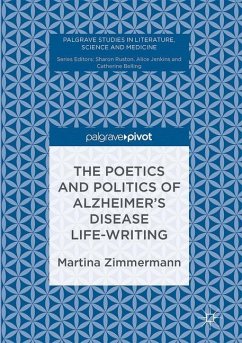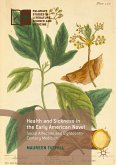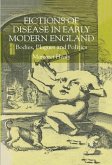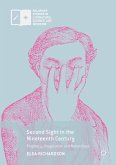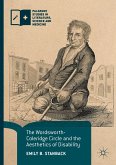This book is open access under a CC BY 4.0 license.
This is the first book-length exploration of the thoughts and experiences expressed by dementia patients in published narratives over the last thirty years. It contrasts third-person caregiver and first-person patient accounts from different languages and a range of media, focusing on the poetical and political questions these narratives raise: what images do narrators appropriate; what narrative plot do they adapt; and how do they draw on established strategies of life-writing. It also analyses how these accounts engage with the culturally dominant Alzheimer's narrative that centres on dependence and vulnerability, and addresses how they relate to discourses of gender and aging. Linking literary scholarship to the medico-scientific understanding of dementia as a neurodegenerative condition, this book argues that, first, patients' articulations must be made central to dementia discourse;and second, committed alleviation of caregiver burden through social support systems and altered healthcare policies requires significantly altered views about aging, dementia, and Alzheimer's patients.
This is the first book-length exploration of the thoughts and experiences expressed by dementia patients in published narratives over the last thirty years. It contrasts third-person caregiver and first-person patient accounts from different languages and a range of media, focusing on the poetical and political questions these narratives raise: what images do narrators appropriate; what narrative plot do they adapt; and how do they draw on established strategies of life-writing. It also analyses how these accounts engage with the culturally dominant Alzheimer's narrative that centres on dependence and vulnerability, and addresses how they relate to discourses of gender and aging. Linking literary scholarship to the medico-scientific understanding of dementia as a neurodegenerative condition, this book argues that, first, patients' articulations must be made central to dementia discourse;and second, committed alleviation of caregiver burden through social support systems and altered healthcare policies requires significantly altered views about aging, dementia, and Alzheimer's patients.
"Martina Zimmermann's The Poetics and Politics of Alzheimer's Disease Life-Writing is not only essential reading for anyone who has an interest in patient narratives or medical humanities broadly but is also helpful in changing the general cultural discourse that surrounds the ways in which Alzheimer's patients are discussed. ... the first study of many that seek to change the public discourse that surrounds one of our most marginalized populations." (Kathryn Lafferty Danner, Journal of Medical Humanities, Vol. 42, 2021)
"Zimmermann's study is the only monograph that critically examines Alzheimer's narratives and as such, her book is an important contribution to the discourse on literary representations of the Alzheimer's disease experience. ... her work will benefit those medical humanities' scholars who are interested in resisting the silencing tendencies of the medico-scientific discourse about dementia. ... Zimmermann's monograph continues the tradition ofhelping those who are students of the medical humanities cultivate more morally capacious ways of being in the world." (Julie Kutac, Centre for Medical Humanities Durham University, centreformedicalhumanities.org, January, 2018)
"Zimmermann's study is the only monograph that critically examines Alzheimer's narratives and as such, her book is an important contribution to the discourse on literary representations of the Alzheimer's disease experience. ... her work will benefit those medical humanities' scholars who are interested in resisting the silencing tendencies of the medico-scientific discourse about dementia. ... Zimmermann's monograph continues the tradition ofhelping those who are students of the medical humanities cultivate more morally capacious ways of being in the world." (Julie Kutac, Centre for Medical Humanities Durham University, centreformedicalhumanities.org, January, 2018)

